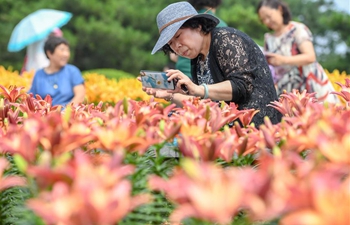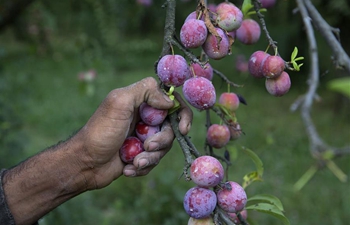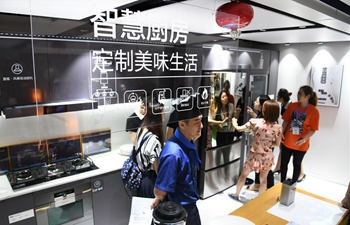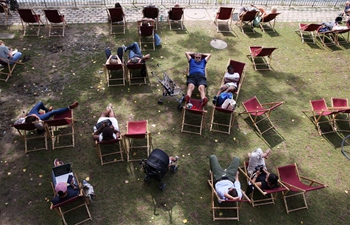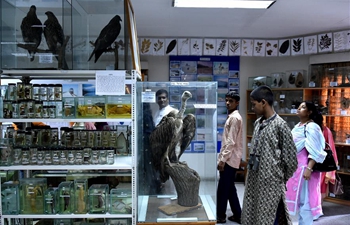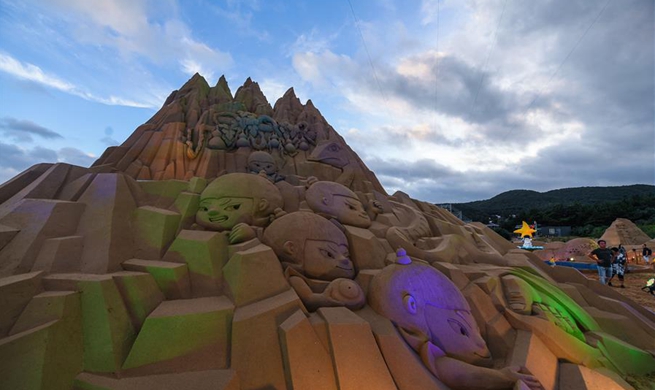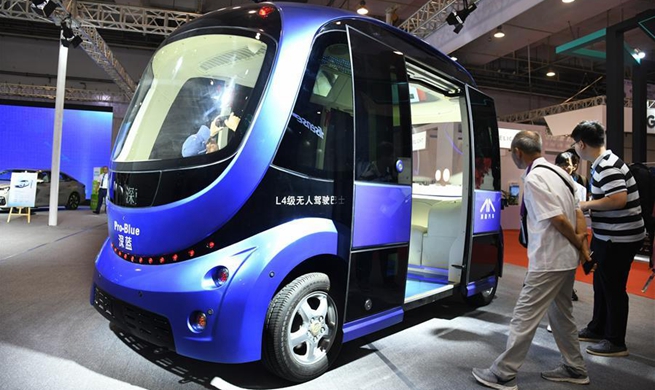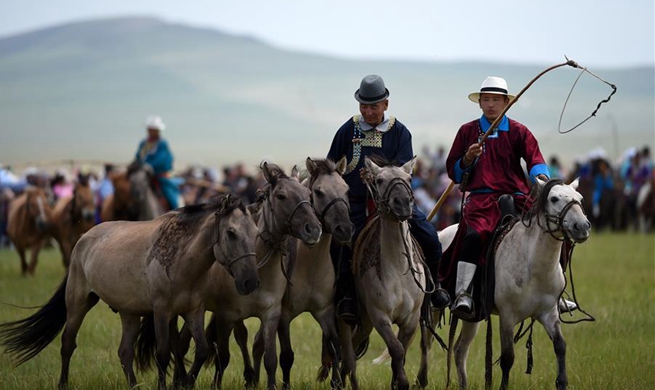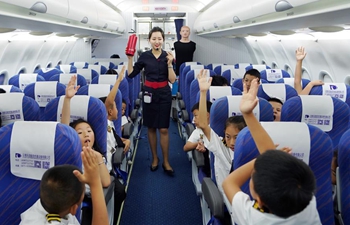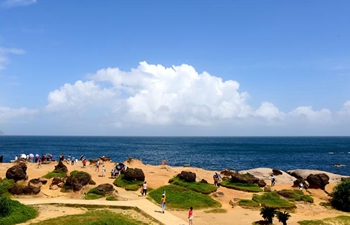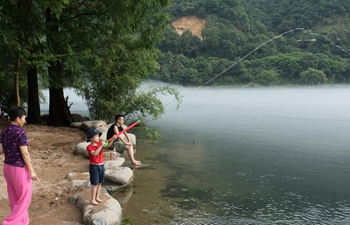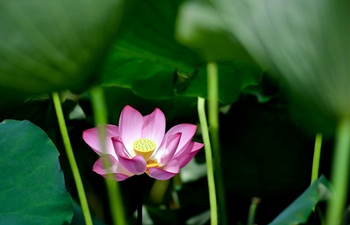BEIJING, July 19 (Xinhua) -- After helping scientists complete many significant experiments such as growing rice and vegetables in space, observing the strongest explosions in the universe and setting up the most precise clock in space, China's first space lab Tiangong-2 ended its mission and reentered the atmosphere under control Friday night (Beijing Time).
With deep attachment, Chinese scientists recalled the experience of participating in the design and implementation of the space experiments on Tiangong-2 and also looked forward to more frontier research on China's future space station.
Zheng Huiqiong, a researcher at the Institute of Plant Physiology and Ecology of the Chinese Academy of Sciences (CAS), still remembered how she nervously waited for astronauts in November 2016 to bring back a small box containing the Arabidopsis thaliana, a kind of vegetable, which had grown on Tiangong-2 for about 50 days.
As the lead scientist of the experiment, she was the first one to see the plant with a little blossom.
"That was an unparalleled exciting moment," Zheng said.
Zheng's team put seeds of Arabidopsis thaliana and rice in the space lab to allow them to complete the growth process from seeds to producing seeds in space, the first such experiment carried out by Chinese scientists.
From the small box brought back by astronauts, the team harvested nine seeds, which have generated the fourth generation on Earth.
"The Tiangong-2 mission was our first opportunity to carry out a long-term plant experiment in space. This experiment is significant because growing grains and vegetable will be a necessity if humans want to leave the earth and have long-term survival and travel in space," Zheng said.
Many interesting and important discoveries have been made in the experiments of Tiangong-2.
"We found that plants grow slower in space than on Earth and blossom later. However, they live longer in space than on Earth. The lifespan of Arabidopsis thaliana in space was about twice as long as on Earth. We believe that the genes related to aging change in space," Zheng said.
"If we find the method to regulate the growth of plants, we could postpone the blooming of vegetables to make them grow more leaves and accelerate the blooming of rice to make them seed as soon as possible. Therefore, we can use the limited resources in space to maximize crop yields. The research can also find its application back on Earth," said Zheng.
Yin Dekui, a researcher at the Shanghai Institute of Technical Physics of CAS, recalled that his team had tested the multi-angle wide-band imaging spectrometer on an airplane before the instrument was installed on Tiangong-2. The researchers persisted in the bumpy plane for the experiment while vomiting.
Zhang Yunhua, a researcher at the National Space Science Center of CAS, said Tiangong-2 has provided valuable opportunities for Chinese scientists to test their new technologies and methods. His team developed a three-dimensional microwave altimeter and tested it on Tiangong-2 to improve China's ocean observation capability.
The success of the Tiangong-2 mission has ushered in the era of building China's space station, which is expected to be completed around 2022.
Weighing 66 tonnes, the Tiangong space station will be a T shape with the Tianhe core module at the center and the Wentian and Mengtian lab capsules on each side.
The station, orbiting 340 to 450 kilometers above the Earth's surface, could be enlarged to 180 tonnes if required and accommodate three to six astronauts. It is designed to last at least 10 years, but this could be prolonged through in-orbit maintenance, Zhou Jianping, chief designer of China's manned space program, has said.
Sixteen experiment racks will be installed on the space station to support hundreds of space research projects, according to the Technology and Engineering Center for Space Utilization of CAS.
"The experiments on Tiangong-2 have laid the foundation for further experiments and research on the space station. For instance, we want to study the intrinsic mechanism of prolonged life in space," said Zheng.
"Although Tiangong-2 was successful, we still have many regrets about the experiment. We hope to have the opportunity to do better on the space station," She added.
Tiangong-2 tested the first-ever cold atom clock in space, which was so accurate that it would only lose one second in 30 million years. The development of the clock would have a far-reaching impact on the deep space exploration, basic physical research and precision measurement, according to its developers from the Shanghai Institute of Optics and Fine Mechanics of CAS.
China's space station will carry a hydrogen clock, a cold atomic clock and an optical clock to establish a high-precision time and frequency system. The margin of error of the system would be less than one second every 3 billion years.
Zhang Lixian, a designer of the experiment racks of China's space station, said each rack could be regarded as a lab moved into space and capable of supporting various cutting-edge space experiments.
For instance, one rack is equipped with an automatic mechanical arm with an operational accuracy of better than five microns, which could support experiments at the level of the nucleus, according to Zhang.




